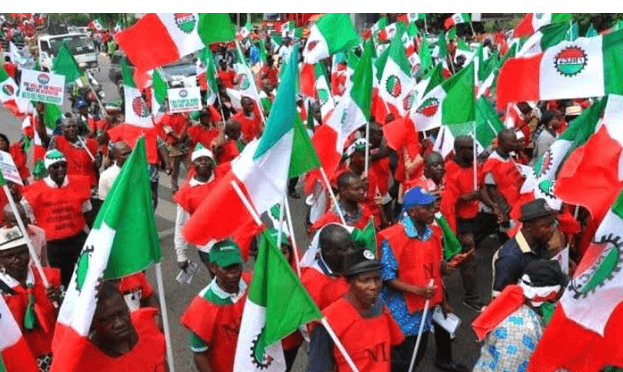
From Princely Onyenwe
As Nigeria joins the rest of the world to celebrate Workers’ Day, it is important to reflect on the rights and struggles of workers so far. The day is not just a day off from work or a day to have a party or parade. It is a day to recognise and appreciate the contributions and sacrifices of workers who built and have continued to build the country.
It is instructive to note that Workers’ Day, also known as May Day, has its roots in the labour movement and the struggle for workers’ rights. It originated in the United States in the late 19th century and has since been observed in many countries around the world.
In Nigeria, it was first celebrated in 1980, after the military government of General Olusegun Obasanjo declared it a public holiday.
Over the years, Nigerian workers have fought for and won many battles relating to their rights, including the right to form unions and bargain collectively, the right to a safe and healthy workplace, the right to a living wage, and the right to social security.
However, in the considered opinion of this newspaper, these rights are still not enjoyed by all workers in Nigeria, and many continue to face exploitation, discrimination, and poor working conditions.
No doubt, the issue of minimum or living wage is the elephant in the room. Most states still struggle to pay workers their salaries.
A report by BudgIT, a civic-tech organisation leading the advocacy for transparency and accountability in Nigeria’s public finance, claimed that last year alone, at least 12 states out of the 36 in the country owed civil servants not less than one month’s salary as of July 2022, with some owing up to six months, while some workers have yet to receive their pay for over three years.
In a period where most governors are embarking on white elephant projects and signing humongous retirement benefits for themselves, this is unacceptable.
The Federal government is planning to remove fuel subsidy, which will invariably result in an astronomical rise in the price of goods and services. The incoming administration of Bola Tinubu must increase the minimum wage apart from plans for palliatives to cushion the effect of the removal.
This newspaper also frowns at the penchant for unions in the last few months to go on strike with the slightest excuse, no thanks to government not implementing agreements reached with their leaders. In our view, strikes have become a weapon of blackmail by most unions and they should be utilized sparingly and only when necessary. Also, the federal government should learn to honour any agreement reached with any union.
Undoubtedly, one of the biggest challenges facing workers in Nigeria today is the issue of job security. Many workers in the private sector are employed on a contract or casual basis, with no job security or benefits.
This not only affects their income and ability to support themselves and their families but also their health and well-being.Casual workers are often denied access to basic benefits such as health insurance and pension schemes, leaving them vulnerable in times of need.
Another challenge facing workers in Nigeria is the issue of gender inequality. Women make up a significant proportion of the workforce in Nigeria, but they often face discrimination and harassment in the workplace.
Despite these challenges, workers in Nigeria have continued to organize and fight for their rights. Trade unions and other labor organizations have played a key role in advocating for better working conditions, wages, and benefits for workers. They have also been instrumental in promoting social justice and equality for all workers, regardless of gender, age, or background.
As we celebrate Workers’ Day in Nigeria, it is important to remember and honour the contributions and sacrifices of workers who have fought for the rights and dignity of all workers.
We must also renew our commitment to the ongoing struggle for workers’ rights, and work together to address the challenges and injustices that still exist in workplaces and communities.
This means ensuring that all workers have access to decent work, fair wages, and basic benefits such as health insurance and pension schemes. It also means recognising the importance of unions and other labour organisations in promoting social justice and equality for all workers.
Consequently, as we celebrate Workers’ Day in Nigeria, let us remember and honour also the contributions and sacrifices of workers who have fought for the rights and dignity of all in the workplace. Let us stand together and fight for a future where all workers are treated with dignity and respect, and have access to decent work, fair wages, and basic benefits.
Credit: Leadership
9News Nigeria (Owerri) For inquiries on this news contact 9News Nigeria Imo State @08036856526
